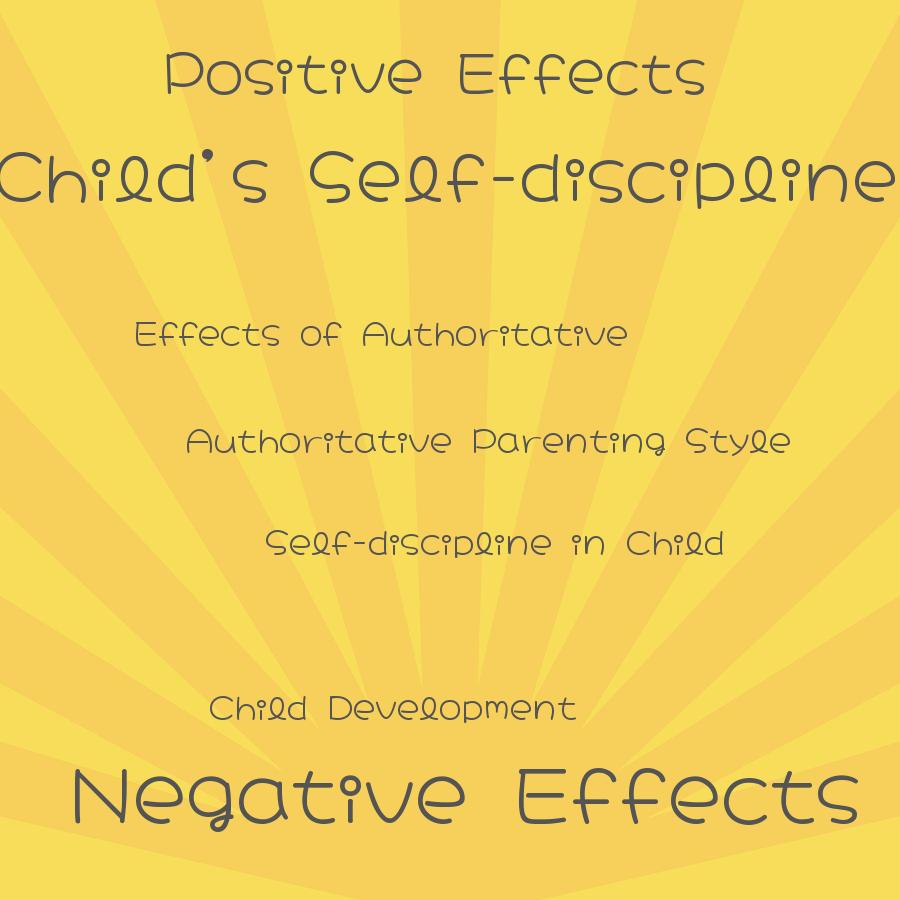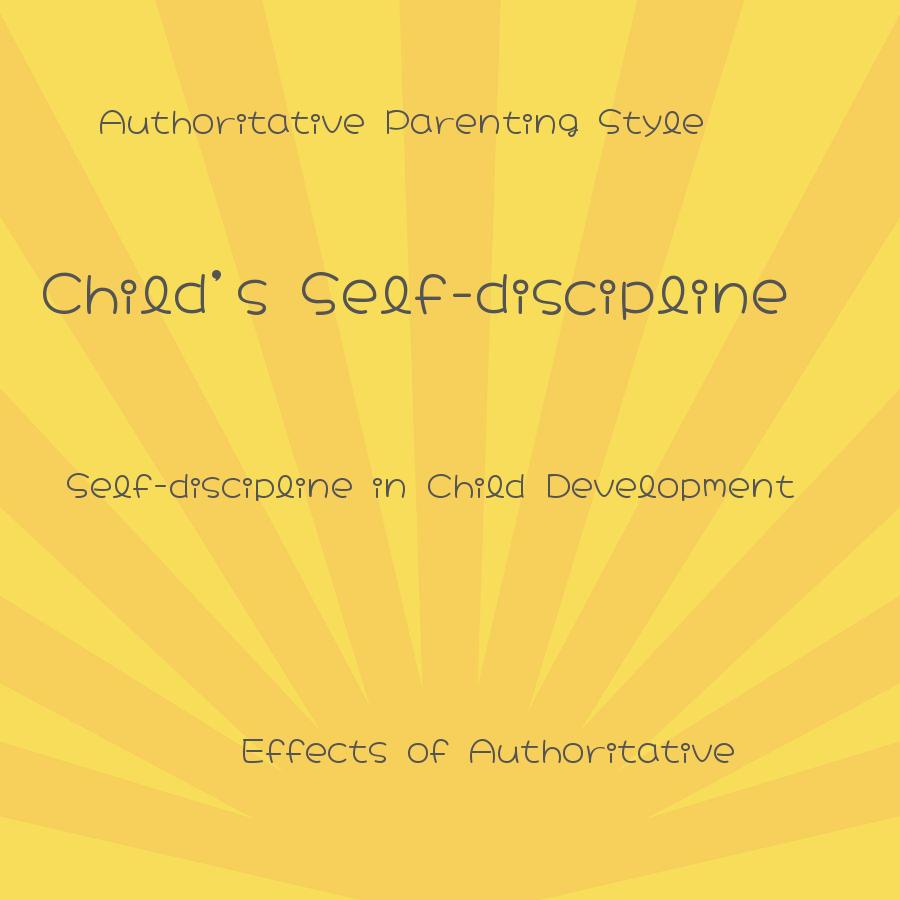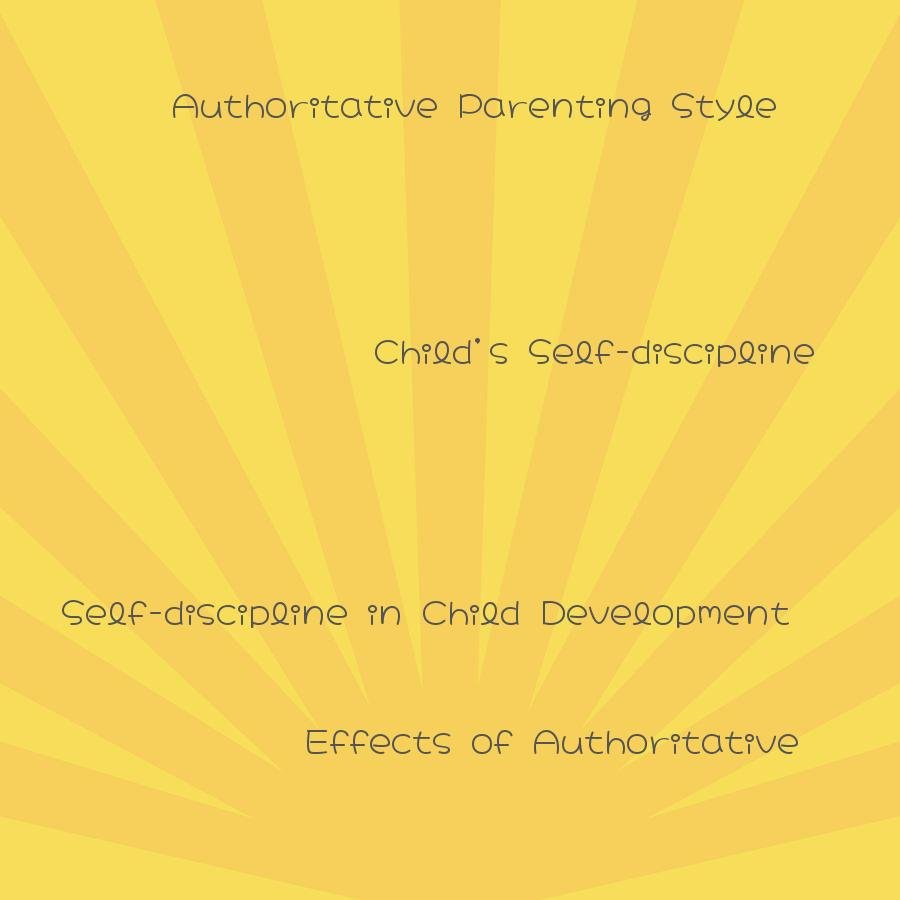An authoritative parenting style can positively impact a child’s self-discipline by providing clear rules and expectations while also allowing for open communication and flexibility.
As a child, I remember watching my friend’s mother interact with her in a way that was different from my own. While my parents were more laid back and allowed me to make many of my own decisions, her mother was firm and had strict rules that she expected her daughter to follow without question.
At the time, I didn’t understand why things were so different between us.
Years later, as an adult and a parent myself, I learned about the concept of authoritative parenting style. This type of parenting is characterized by clear rules and expectations but also involves warmth, supportiveness, and open communication between parent and child.
It’s a balance between being firm yet empathetic.
This got me thinking – what are the effects of an authoritative parenting style on a child’s self-discipline? Does this approach lead to better self-control in children? In this article, we’ll explore the research behind authoritative parenting and its impact on children’s self-discipline skills. So let’s dive in!
Here You Will Learn:
Definition of Authoritative Parenting Style



To understand the effects of authoritative parenting on a child’s self-discipline, we first need to define what it is. Authoritative parenting style is characterized by parents who set clear rules and expectations for their children but also provide warmth, supportiveness, and open communication.
This approach involves setting limits while still allowing children to express themselves within those boundaries.
Research has shown that this type of parenting can lead to positive outcomes in children such as better academic performance, higher self-esteem, and improved social skills. However, one area that hasn’t been explored as much is how authoritative parenting affects a child’s ability to develop self-discipline.
As I mentioned earlier in my personal story about my friend’s mother being an authoritarian parent while mine were more laid back; I always wondered why things were different between us growing up. Now with the knowledge of authoritative vs authoritarian styles – it all makes sense! But does this mean that her strict upbringing led her towards better discipline than me? Let’s find out!
Importance of Self-discipline in Child Development
Self-discipline is an essential skill that children need to develop as they grow up. It’s the ability to control one’s behavior, thoughts, and emotions in a way that aligns with their goals and values.
Children who have good self-discipline skills are more likely to succeed academically, socially, and emotionally.
As I observed my friend growing up under her mother’s authoritative parenting style, I noticed how she was always on top of her schoolwork and extracurricular activities. She never missed a deadline or forgot an assignment because she had developed excellent self-discipline skills from following clear rules set by her parents.
Research has shown that children who grow up with authoritative parents tend to have better self-control than those raised under other parenting styles such as authoritarian or permissive. This is because these children learn how to regulate their behavior through consistent guidance from their parents while also being allowed some autonomy in decision-making.
In addition to academic success, having good self-discipline can also lead to better mental health outcomes for children later in life. They are less likely to engage in risky behaviors such as drug use or delinquency since they have learned impulse control early on through parental modeling of appropriate behaviors.
Overall it seems like there are many benefits associated with developing strong self-discipline skills during childhood – something which can be fostered by adopting an authoritative parenting style at home!
Positive Effects of Authoritative Parenting On Self-discipline
As I delved deeper into the research on authoritative parenting, I discovered that this approach has numerous positive effects on a child’s self-discipline. Children who grow up with an authoritative parent are more likely to develop strong self-control skills and exhibit better behavior in various settings.
One of the reasons for this is that children raised by authoritative parents have clear expectations set for them from an early age. They know what is expected of them and understand the consequences if they fail to meet those expectations.
This clarity helps children learn how to regulate their own behavior, which leads to better self-discipline.
Because these parents provide warmth and support while still maintaining boundaries, children feel safe expressing themselves openly without fear of punishment or rejection. This open communication fosters trust between parent and child which can lead to improved decision-making skills as well as increased confidence in one’s ability to make good choices.
It seems that an authoritative parenting style can be highly beneficial when it comes to developing a child’s self-discipline abilities – something we all want our kids’ future selves will thank us for!
Negative Effects of Authoritarian and Permissive Parenting Styles On Self-discipline
As we delve into the effects of authoritative parenting on self-discipline, it’s important to note that not all parenting styles are created equal. In fact, research has shown that both authoritarian and permissive parenting styles can have negative impacts on a child’s ability to develop self-discipline.
Authoritarian parents tend to be strict and demanding without providing much warmth or support for their children. They often use punishment as a means of control rather than positive reinforcement or open communication.
This approach can lead children to become rebellious or resentful towards authority figures, which may hinder their ability to regulate their own behavior in the long run.
On the other hand, permissive parents tend to be very lenient with rules and boundaries for their children. While this may seem like an easygoing approach at first glance, it can actually harm a child’s development by failing to provide structure and guidance necessary for building self-control skills.
Reflecting back on my childhood friend whose mother had an authoritarian style of parenting – while she was obedient in her mother’s presence; she would act out when given freedom outside her home environment because there were no clear guidelines set up by her mom regarding what is acceptable behaviour outside home. Now let’s explore how authoritative style differs from these two extremes!
Strategies for Implementing an Authoritative Parenting Style
Now that we understand what authoritative parenting is and its potential impact on a child’s self-discipline, let’s explore some strategies for implementing this style of parenting.
Firstly, it’s important to establish clear rules and expectations with your child. This means setting boundaries around behavior and consequences for breaking those boundaries.
However, it also involves explaining the reasoning behind these rules so that your child understands why they are in place.
Secondly, an authoritative parent should be warm and supportive towards their children while still maintaining authority over them. This can involve showing affection through physical touch or verbal praise when appropriate.
Thirdly, open communication between parent and child is crucial in an authoritative parenting style. Encourage your children to express their thoughts or feelings without fear of punishment or judgment from you as a parent.
Lastly but most importantly – consistency! Consistency is key when implementing any type of parenting style but especially with an authoritative approach where clear expectations have been set out beforehand.
By employing these strategies consistently over time as parents using the authoritarian approach will see positive changes in their children’s self-discipline skills which will help them become more responsible adults later on down the line!